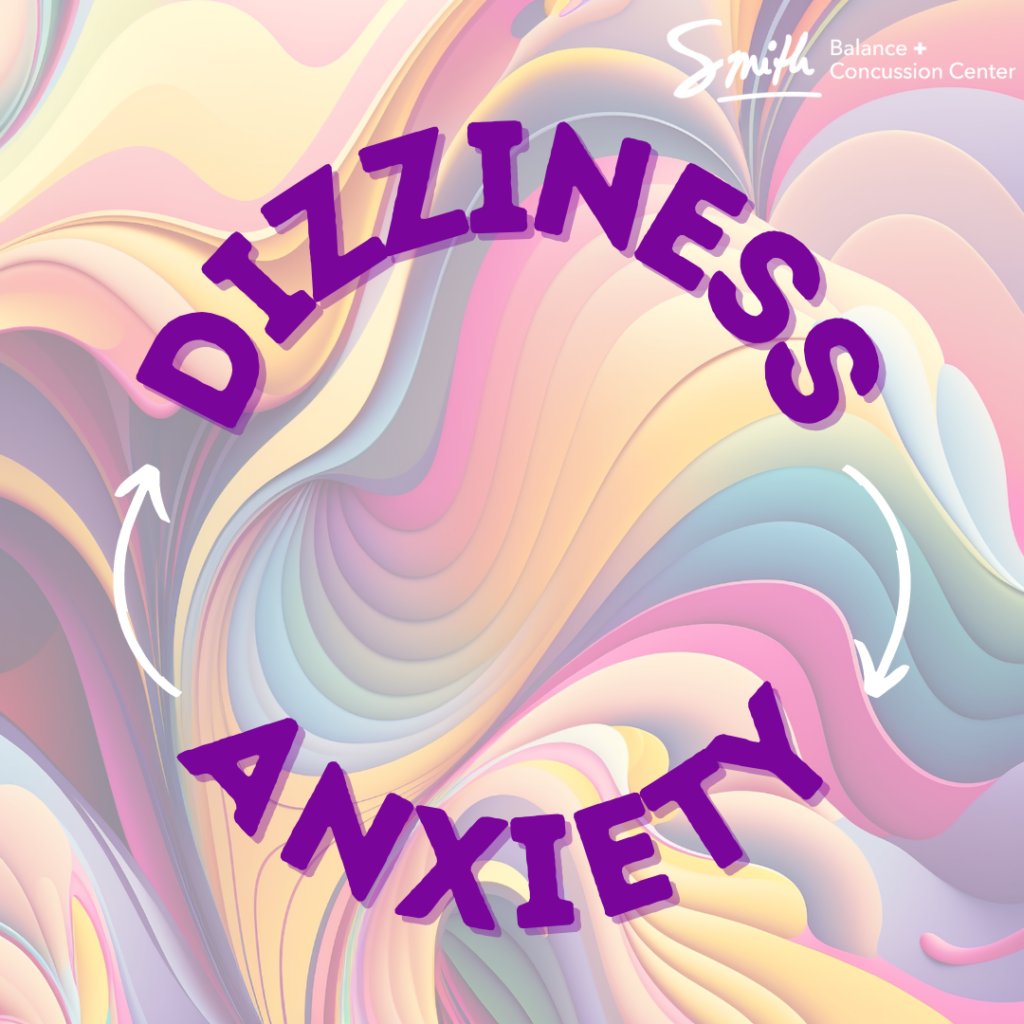
Vestibular disorders can be frightening. They can make you feel out of control of your body, giving you sensations of movement that do not match what your body is doing. In addition to that, the additional symptoms associated with vestibular disorders can make you feel generally unwell with complications such as blurred vision, brain fog, nausea, changes in hearing, imbalance and headache.
Sometimes, one of the consequences of the vestibular disorder and its symptoms is the production of a sense of anxiety. Individuals living with vestibular dysfunction become nervous to participate in normal daily activities or even move their heads because doing so can provoke more or worse symptoms. This can occur in people with or without a history of an anxiety disorder.
The difficulty of having an increase in anxiety associated with a vestibular disorder is that anxiety can produce increased dizziness symptoms. And, as you can guess, the more dizziness someone has the more their anxiety increases. This creates a vicious cycle of dizziness-anxiety-dizziness that needs to be interrupted to help both symptoms calm down. It is believed that this negative cycle physiologically occurs because information from the vestibular system is processed in the same areas of the brain as anxiety. Therefore, the brain activity from one can influence the brain activity of the other. In the clinic, we often see this cycle develop in individuals with a variety of vestibular disorders ranging from BPPV to Meniere’s Disease.
There are steps that can be taken to tackle the dizzy-anxious-dizzy cycle. First, the source of the dizziness needs to be addressed. Vestibular rehabilitation can be helpful in combination with medications as needed to either correct the source of dizziness (such as in BPPV) or to retrain the balance system with habituation exercises. Next, the anxiety itself should also be addressed. Working on grounding, mindfulness, meditation, and cognitive behavioral therapy are often beneficial for this.
A comprehensive, holistic treatment plan will address the physical and psychological components of a vestibular disorder. Be sure to discuss your dizziness and anxiety with your healthcare team to ensure all of your symptoms are being properly addressed. Doing so can help to break the dizzy-anxious-dizzy cycle, help to relieve your symptoms, and get you back to participating in everything you enjoy doing.